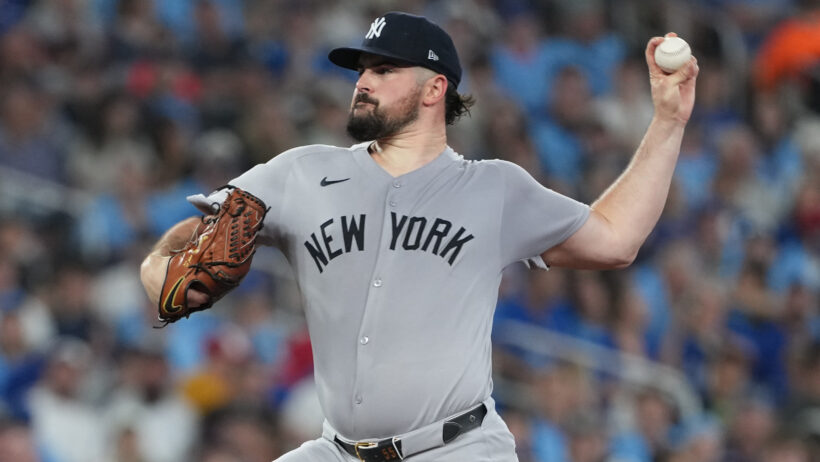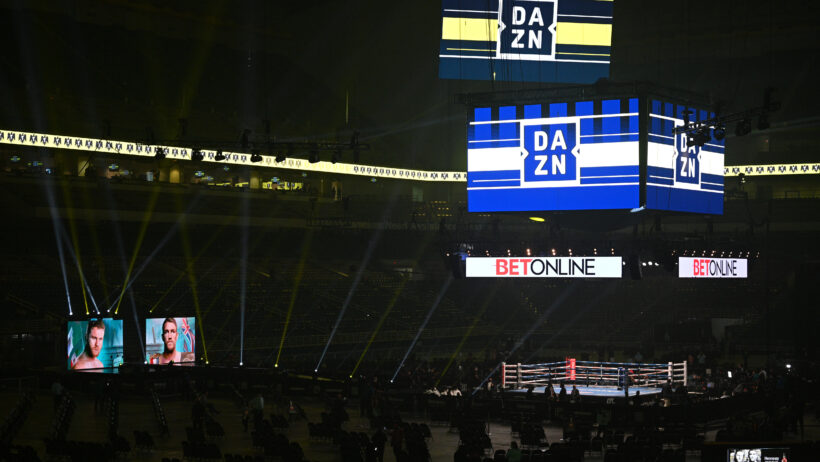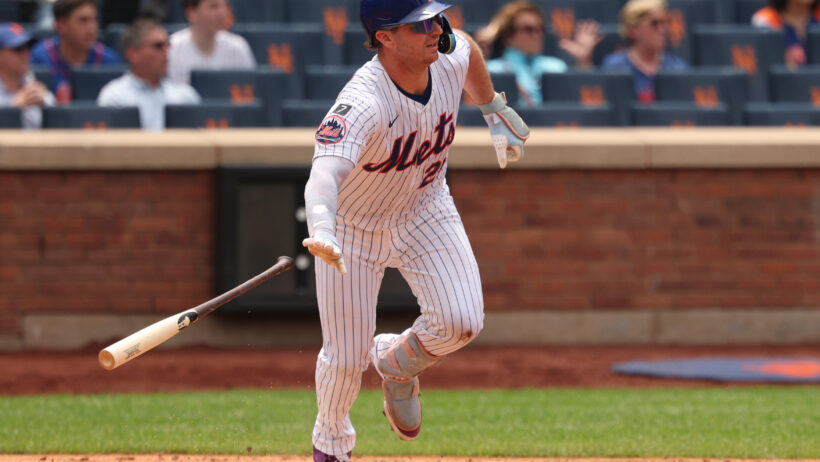Murphy v NCAA: Odds Sports Betting Will be Legalized in New Jersey
By Alex Kilpatrick in News
Published:
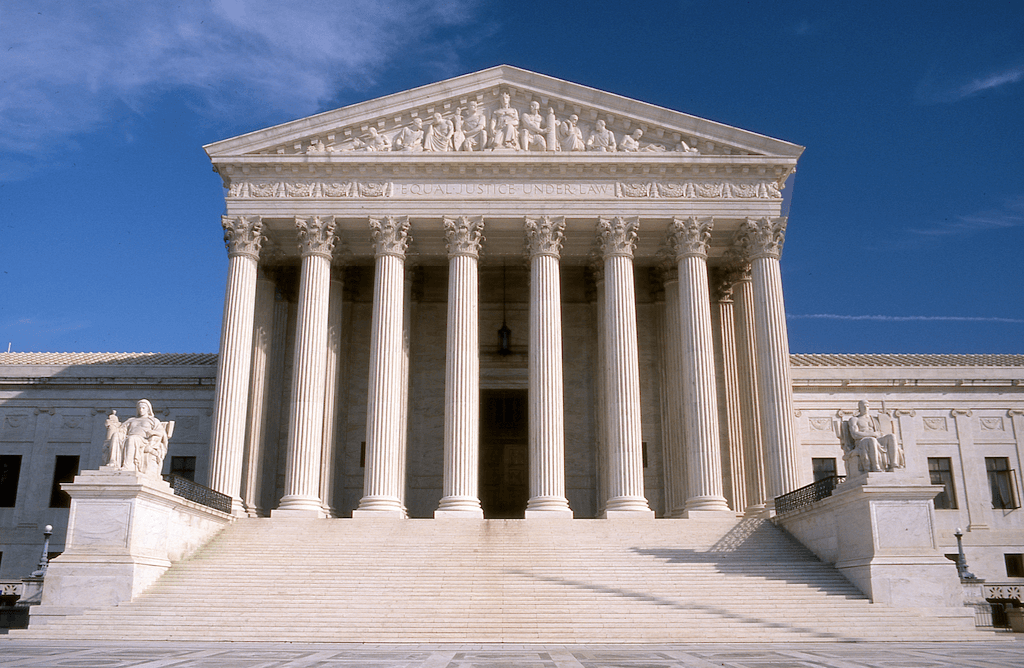
- The Supreme Court is almost ready to decide a case on sports betting, but it might not be what you think
- The future of sports betting in the US looks good, but not that good
As you might be aware, there’s a case before the US Supreme Court that will determine whether or not sports betting will be allowed at a number of racetracks and casinos in New Jersey. This case is obviously very important for sports betting in the US, as it involves the constitutionality of the federal law prohibiting states from participating in, sanctioning, or authorizing sports betting.
The Supreme Court is notoriously difficult to cover, so a lot of the articles about this case might leave you with more questions than answers. We’ve put together this helpful primer, so that you can look really smart at bars.
| Prop | Odds |
|---|---|
| Odds online sports betting is made legal in the United States by 2020 | 20/1 |
| Odds sports betting is legal in New Jersey in time for the Kentucky Derby (May 5) | 6/1 |
| Odds Professional and Amateur Sports Protection Act is overturned | 7/13 |
What is Murphy v NCAA about?
- New Jersey wants to repeal its sports betting ban, but have run afoul of a federal law called PASPA
- A federal law dictating what a state can do with its own laws probably runs afoul of the 10th Amendment
The case is called Murphy v National Collegiate Athletic Association, and in it, the State of New Jersey seeks to have the Professional and Amateur Sports Protection Act (PASPA) overturned. This whole thing started when New Jersey repealed its sports-betting ban in 2014, and was sued by the NCAA, NFL, NBA, NHL and MLB, as they had been when they passed earlier bills allowing sports betting. The lower courts sided with the leagues, and New Jersey asked the Supreme Court to weigh in, as it does present a genuine constitutional question.
It would be one thing for the federal government to ban sports betting, and another thing for the government to ban states from participating in or sanctioning sports betting, but the current reading of PASPA is that states are barred from repealing their own bans on sports betting. New Jersey thinks this violates the Tenth Amendment (which gives all powers not delegated to the federal government to the states and the people) and the concept of federalism, generally.
[New Jersey] also asserts that PASPA constitutes “commandeering”.
They also assert that PASPA constitutes “commandeering,” i.e. the federal government is using the states to enforce federal laws. They’ve got a point, and it seemed like the justices were sympathetic to their case in oral arguments.
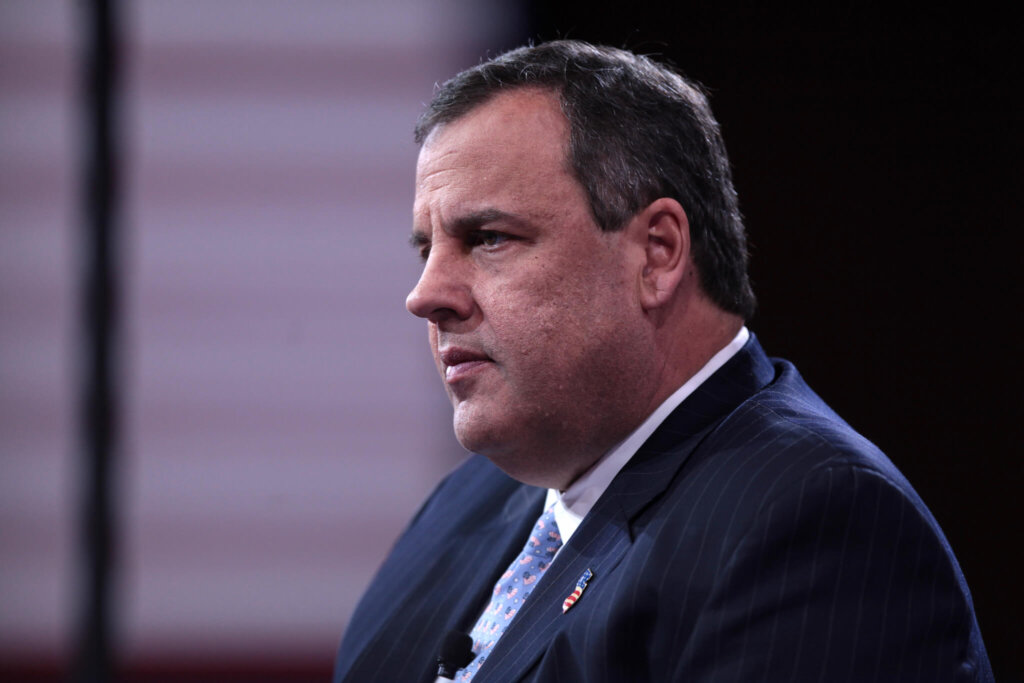
What is Murphy v NCAA not about?
- The Supreme Court is not deciding whether sports betting is legal.
- The Supreme Court is not deciding whether betting on amateur athletics is morally and/or legally proper.
As a sports bettor, try not to read too much into Murphy v NCAA, unless you’re really into a strict definition of the Tenth Amendment and what constitutes commandeering. Even if PASPA is overturned, sports betting (particularly online sports betting) is a long way from being legal everywhere in the United States. Overturning PASPA won’t overturn the Unlawful Internet Gambling Enforcement Act of 2006, which you’ll remember because it got your PartyPoker account shut down, or the Federal Wire Act of 1961, which explicitly applies to sports betting. It also won’t change your state laws, which for the majority of states ban sports betting.
On another note, when you see “v NCAA“ in the name, you could be forgiven for thinking it has something to do with the NCAA’s system of unpaid labor. This case has nothing to do with that, and the Supreme Court declined to open that particular kettle of fish when they rejected O’Bannon v NCAA in 2016.
When will this all end?
- Probably not before the Kentucky Derby, but probably in time for the Belmont Stakes
The court did not issue an opinion on April 2nd, and now is in recess. Their next sitting starts on the 16th, but the court doesn’t usually issue opinions on Mondays, which leaves the 17th as the first day we’re likely to get an opinion. The court goes into recess at the end of June, and after that won’t open until the next October term.
Most SCOTUS watchers expect a decision this summer, as it doesn’t seem like the Supreme Court will sit on this one into the next October term. The last day of this term is June 25th, so you can probably expect to see an opinion by then.
Who’s going to win?
- Probably New Jersey, and PASPA is probably done, but the Supreme Court has produced some wonky decisions in the past
It’s hard to say! This isn’t a straightforward case at all, and it’s very much part of a bigger issue. The Supreme Court doesn’t care either way whether or not sports betting is allowed in New Jersey and is using this case to decide how state and federal law interact.
This decision will have all sorts of consequences for gun control and more politically contentious issues.
This decision will have all sorts of consequences for gun control and more politically contentious issues, so it’s likely that the court is using this case to strictly define “commandeering” now, in a relatively uncontroversial environment, instead of later.
Since the court decided to take this case, and given how oral arguments went, it certainly seems that PASPA is on its last legs. It’s difficult to see how the Supreme Court would find PASPA constitutional, but they’ve certainly done some great gymnastics in the past. They could strictly define “commandeering” in such a way that PASPA isn’t affected but the principle they want is set, so that the legal question they’ve set out to answer is satisfied and New Jersey sports bettors go home with nothing.
When is sports betting going to be legal in the US?
- The ground is ripe for legal sports betting, and it’s getting more and more popular
- Things take a long time to get decriminalized, though
You have to think soon. The public has really come around to the idea in the last decade; a 2010 survey found that two thirds of Americans did not support the legalization of online betting, where a 2014 study found that the majority favored sports betting. Younger people are also more open to the idea than older people, which suggests that public opinion will keep moving in sports betting’s favor.
The leagues themselves have softened on the idea. Fantasy sports has boosted their popularity, and daily fantasy sports even more so. NBA commissioner Adam Silver wrote a New York Times op-ed in which he stated that “sports betting should be brought out of the underground.”
The NCAA is a holdout, because they don’t pay their players and really like it that way.
MLB commissioner Rob Manfred takes a similar position, recognizing that sports betting is too big of an industry to be meaningfully opposed, and should instead be regulated. The NFL maintains public opposition to sports betting, but is also in the process of moving a team to Nevada, where sports betting is legal.
The NCAA is a holdout, because they don’t pay their players and really like it that way. They’re worried that legalized sports betting would lead to match fixing, which is honestly not a functional argument when billions of dollars are already bet on NCAA events. The NCAA has to maintain a vision of college sports where money doesn’t change hands and nobody is profiting off the exploits of unpaid athletes, and protesting sports betting in the name of amateurism is part of that.

Our current president has voiced approval for legalized sports betting, and a former president has confessed to participating in illegal sports betting. All that needs to happen now is for the wheels of power in Washington to start turning efficiently for something that the majority of people want!
Maybe don’t hold your breath.

Golf, Tennis & College Football Writer; Jr. Editor
Alex studied political science in university but spent most of that time watching college football. He covered sports betting for SBD from 2017-2019. Avid tennis player, golf nut, and motorsports nerd.
